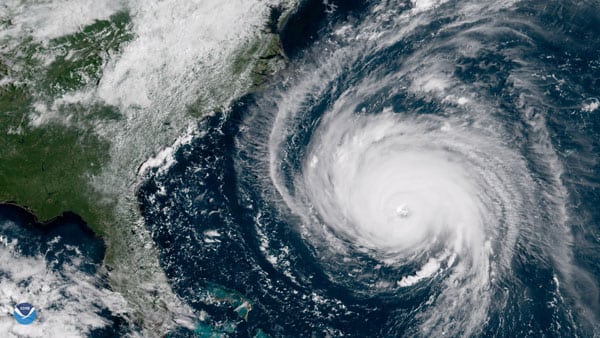
September 16, 2018; New York Times
In North Carolina, places of worship have stepped up in a big way to the recent storm damage from Hurricane Florence. According to the New York Times:
- Manna Church, the largest church in Fayetteville, became the city’s eighth official storm shelter.
- The only mosque in Burlington, N.C., joined with others across the region to serve as a shelter, handing out food, water, and blankets.
- Southern Baptists cooked tens of thousands of meals and had volunteers with chainsaws and shower units helping across the coast.
- Temple Church in New Bern worked with a local community member who owned a boat to help pull people out of the water.
According to Fortune, Florence is expected to cause $18 billion in damage. While Florence started out as a hurricane and eventually was downgraded to a tropical depression, the water damage from flooding still created a crisis for countless families. It’s hard to imagine local religious groups not being involved.
After the public relations crisis Joel Osteen faced in 2017 in the aftermath of Hurricane Harvey, the community perception that religious organizations should open their doors during crisis rings true. A fast and organized response to disaster is in some ways a test for religious communities to show their belief is translating into something important—action. While Lakewood Church did eventually operate as a shelter, Osteen faced criticism for what many saw as a slow response, given the fact that the church can hold 16,000 people.
Sign up for our free newsletters
Subscribe to NPQ's newsletters to have our top stories delivered directly to your inbox.
By signing up, you agree to our privacy policy and terms of use, and to receive messages from NPQ and our partners.
It’s also interesting to note that FEMA recently expanded funding to go directly to houses of worship that are damaged during natural disasters.
The expectation from communities that religious institutions should be actively involved in crisis help comes down to belief and mission. As many churches plan sermons and outreach, it seems emergency response plans also need to be in the mix.
But that community responsibility doesn’t simply fall to churches. While many nonprofits have no religious affiliation, the belief in a calling is the same. Even if a nonprofit’s scope of services doesn’t include natural disaster response, in the eyes of a community, stepping up during disaster is simply the right thing to do.
When disaster strikes, how are we responding in a way that reinforces our belief in a mission and our commitment to community? Has your nonprofit taken the time to identify what resources and shelter you can offer during natural disasters?—Kelly Phipps













